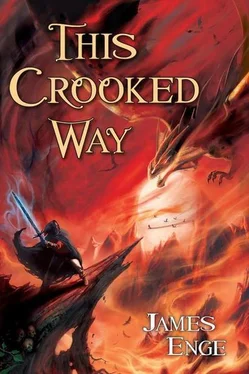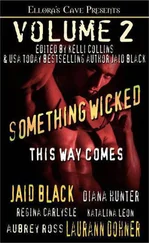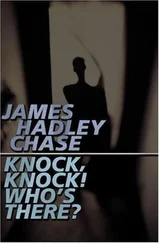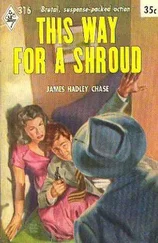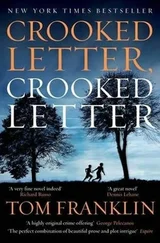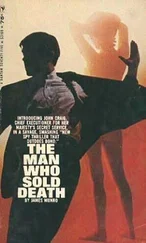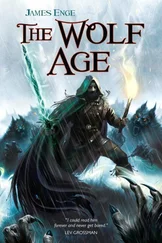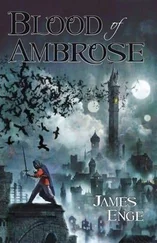He apparently made a similar decision about me. At least, he made no move against us as I remounted and we rode away.
"We'll have to tell the pair riding east from Caroc tonight about this," Liskin said, after a while.
"Right."
Still later he asked, "How did you know it was a trap?"
"The woman was my sister."
He thought about this for a while, and then just had to say, "But she could have been travelling east from Caroc-"
"Naeli's been dead for six years or more," I told him. "She was lost in the woods."
Liskin was silent for a long time. Finally he said, "I'm sorry." (That's what you're supposed to say, isn't it? It's one of the Rules.)
"Her own damn fault," I replied, to get him to shut up. It worked. But it didn't work with Naeli. Nothing ever worked with her.
Naeli's last child, a girl, had been born two months after the death of the father. (He'd been a miner and was killed in a cave-in.) At that time she was living with her husband's stepparents, but about a month after the birth they began wondering aloud how she was going to help pay the expenses of the household. She took the hint, as only Naeli could, and stormed out of there. She stormed all the way from Rendel's to Caroc-not so easy, seeing that she had three boys and an infant girl to tend to-and moved in with me.
At the time I was a journeyman jeweller, working for a crafty old half- Coranian named Besk. I was doing well enough to support my sister's family. And, although there was only one kind of work for women that paid a decent wage, Naeli helped out where she could. She worked a plot of ground behind the house, selling some of her produce, feeding the rest to us. (She referred to us collectively as the Enemy and pretended to mourn each individual vegetable. She would cry out absurd names she had invented for each tomatoroot, then shout, "But no! Their suffering is on their heads! They were born like vegetables, let them die like vegetables! Let their piths be accursed and their names be forgotten!" And the children would laugh, scandalized, and even I would grin. Except for the people she cared about, Naeli took nothing in the world seriously, including the Enemy.)
Naeli was half crazy, anything but a rule-keeper. She was a good mother, though. She taught her children how to read, both Coranian and Castellan, and the two oldest sons were apprenticed out-one to a blacksmith, the other to a carpenter. It wasn't easy to achieve this: sons were supposed to follow the trade of their fathers; that was the first law of the Guilds. But Naeli was tireless in her petitioning, bribing when she could afford to; she insisted that none of her sons would go to the mines to die like their father (in a cave-in) or his father (withered away by some illness breathed in deep under the earth). And she had her way: her youngest son, Thend, we agreed would be Besk's apprentice, or mine, when the time came.
So she took care of her sons and loved them. But it was her daughter, Fasra, who truly held her heart. She doted on the girl, spoiled her, labored long hours at the petty labor permitted to women so that Fasra could have a dowry. And her affection was not misplaced: Fasra was a lovely child, with silver-pale hair, clear brown skin, and two black lightning bolts dwelling permanently in her storm-dark eyes. She was clever and engaging, too; everybody was fond of her.
But it was clear, from the moment she took to her own feet, that Fasra had a will of iron, which she was not inclined to have anyone temper. And Naeli could rarely bring herself to discipline the girl (at once the last remnant of her husband and the radiant mirror of her own youth) as she should have, so matters grew worse. Fasra, at first merely strong-willed, grew contrary; "no" meant yes to her, and "yes" meant I won't.
One day, when Fasra was around seven years old, she was invited on a picnic with some of her friends; they were going to pick wildberries in the woods. The mothers of the children were to accompany them, but Naeli could not go. It was market day and she had a load of vegetables ready to sell. So she told Fasra she couldn't go. Fasra disagreed, and finally Fasra had her way. Naeli committed her to the care of one of the other mothers in attendance, a friend of hers, one of the thousand and one people she knew in Four Castles.
The children went on their picnic. The forest is a strange and beautiful place during the day, but still forbidding in comparison to the ordered life of town and castle. During the morning the children stayed close to their protectors, terrified by the approach of the smallest chipmunk. But, as the day approached noon, the terror receded; the children wandered farther through the green woods and golden clearings, seeking out skeneberries and clusterfruit and the three types of mushroom they had been taught were good to eat.
As noon gave way to afternoon Fasra found herself with less in her basket than most. It wasn't because she wasn't clever or hadn't been taught. But she was moody and contrary. She looked for berries in the shade and mushrooms in the sunlight. It took her much of the day to learn that things grew where they grew, and not where she thought they should.
She explained her theory to her custodian, Naeli's friend, as they sat down for lunch. The berries, she said, were like bright little suns; they could warm up the woods when it was too cool. The mushrooms were chilly and gray, like clouds; they would be pleasant in the hot sun-drenched clearings.
Naeli's friend applauded the ingenuity of this idea, then asked how many berries and mushrooms Fasra had actually collected. Fasra reluctantly showed her basket. Then Naeli's friend showed Fasra her own daughter's basket: it was more than twice as full as Fasra's. Many children had brought in full baskets from the morning's berrying, Naeli's friend explained, perhaps a bit tactlessly, so a change of method seemed in order.
Fasra's face fell and she turned away. But she wasn't stupid; she could learn a hard lesson when she had to. And she had brought three baskets along, which she was determined to bring home full to Naeli, whom she loved as fiercely as Naeli loved her.
So she went to work in the afternoon in grim earnest. The nearby clearing had been plucked clean in the morning, so she searched the ones that were farther away. And she filled two baskets with clusterfruit and skeneberries, bringing them proudly back to her custodian.
It was the third basket that brought disaster. She had resolved to bring back a basket full of cleft-caps, the rarest edible mushroom in our woods. But she started on this too late in the day. That third basket-and her iron willsealed her fate.
In midafternoon, the other children began to wander back, with berrysmeared faces and full baskets. They were happy, but tired, and a little frightened by the lengthening shadows. Darkness was rising from the earth; they wanted to go home; their custodians wanted to take them …but Fasra was missing.
Naeli's friend left her own daughter in someone else's care and ran to the place where Fasra had been last seen. She kept calling out Fasra's name until the girl finally appeared at the edge of a clearing, like a wood-sprite reluctant to leave the forest shadows.
"Come back," Naeli's friend said to the proud child. "We're going home."
"Not till I'm done. My basket's only half full."
Now, if I'd been there, I might have indulged the little girl with a few more moments to pick mushrooms. I might have helped her. I might have bribed her with the contents of my own baskets. And if the child had balked again at coming home I might have said, You are more important to your mother than a basket of mushrooms.
Or, weary from the long day, tired of the child's imperious manner, frightened by the onset of darkness, I might have done exactly what Naeli's friend did. Which was to shout, "No! Come now!"
Читать дальше
